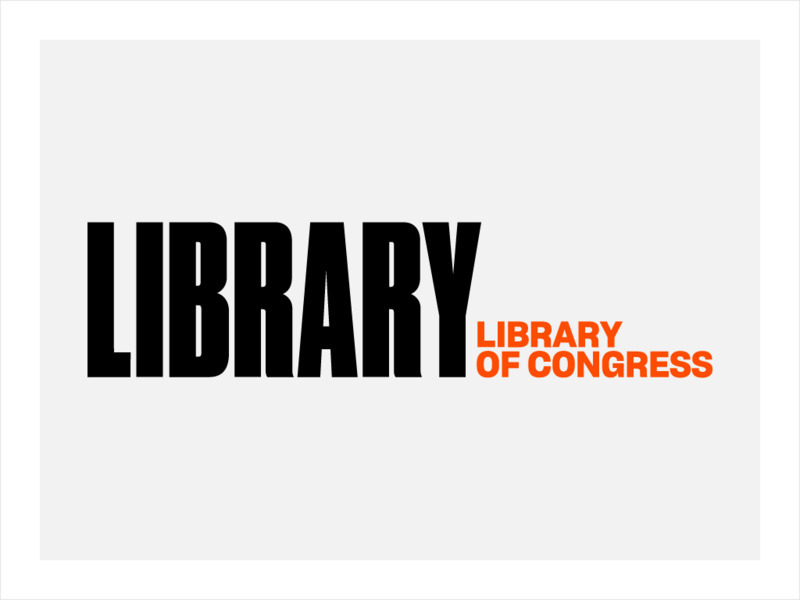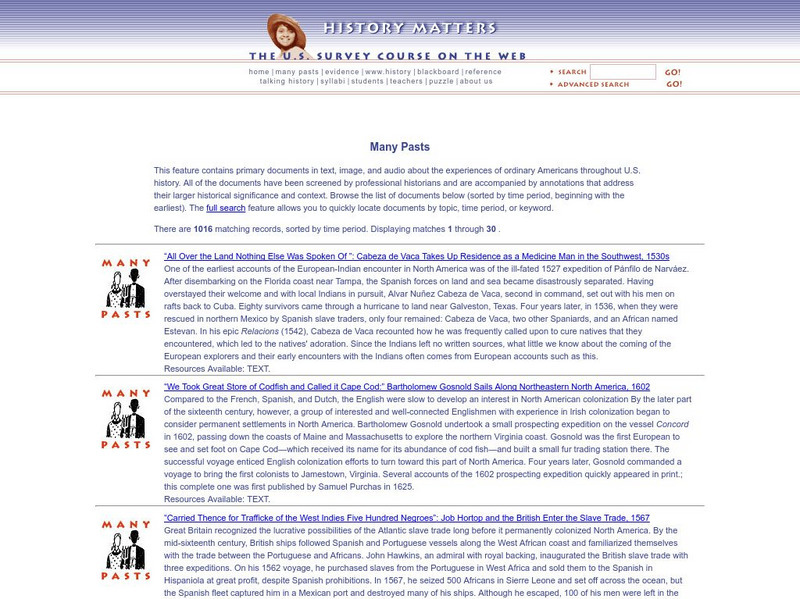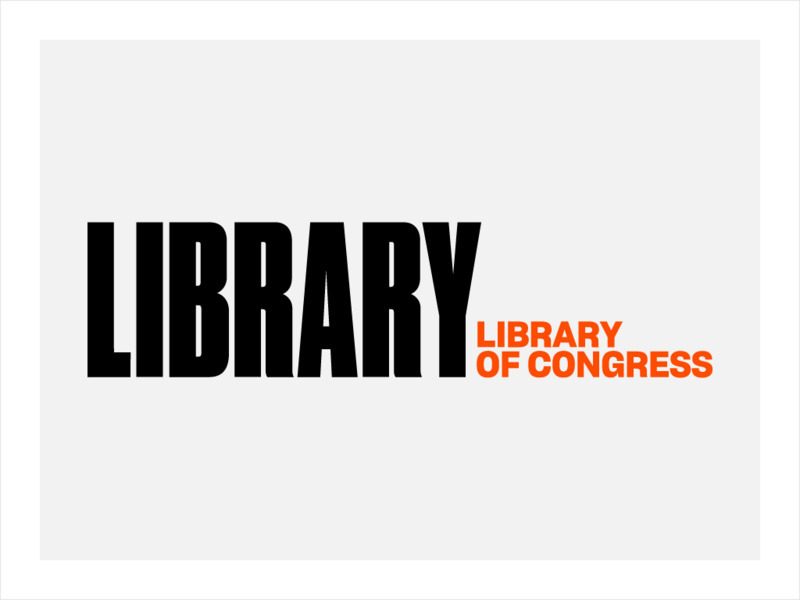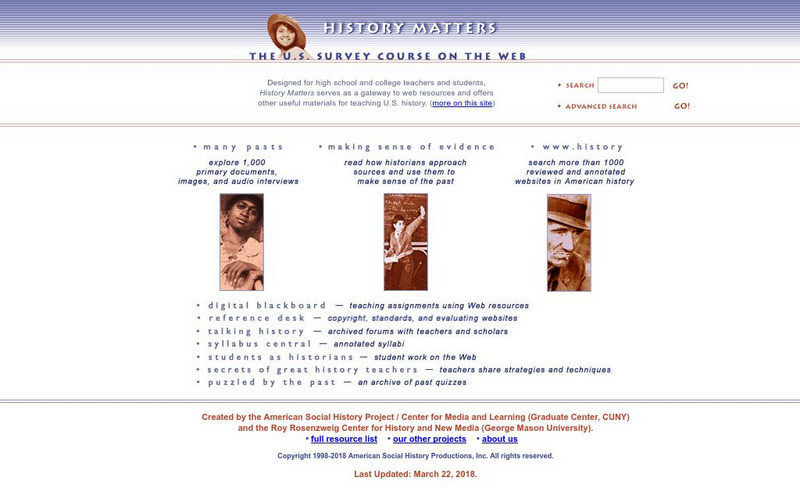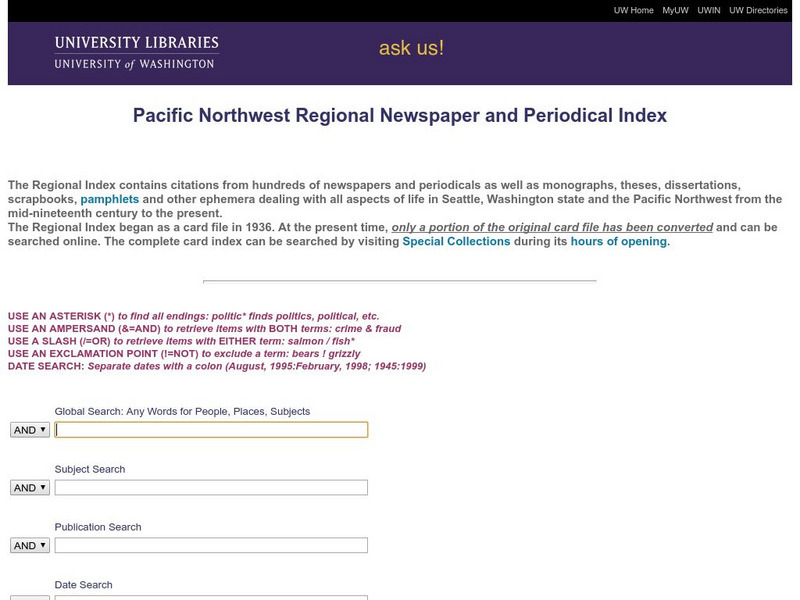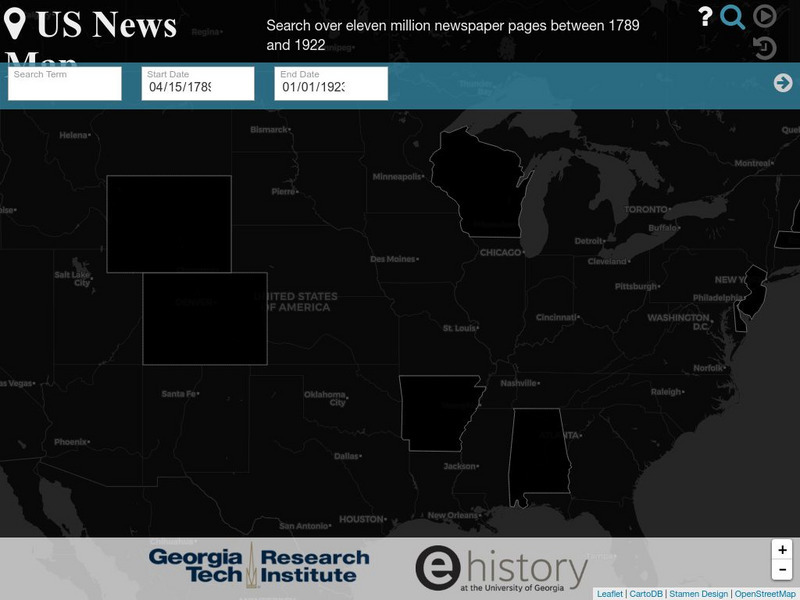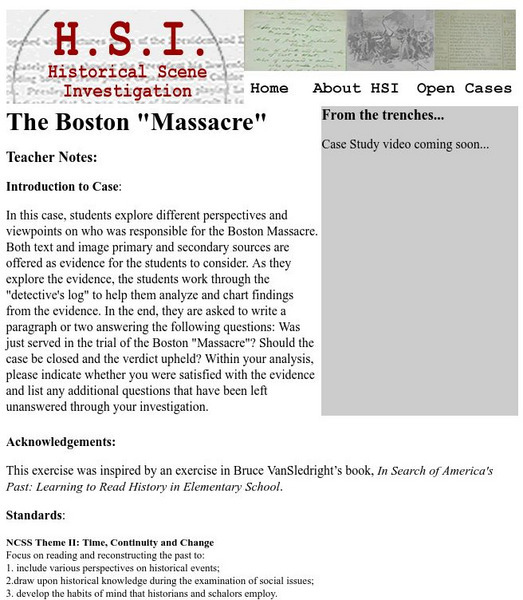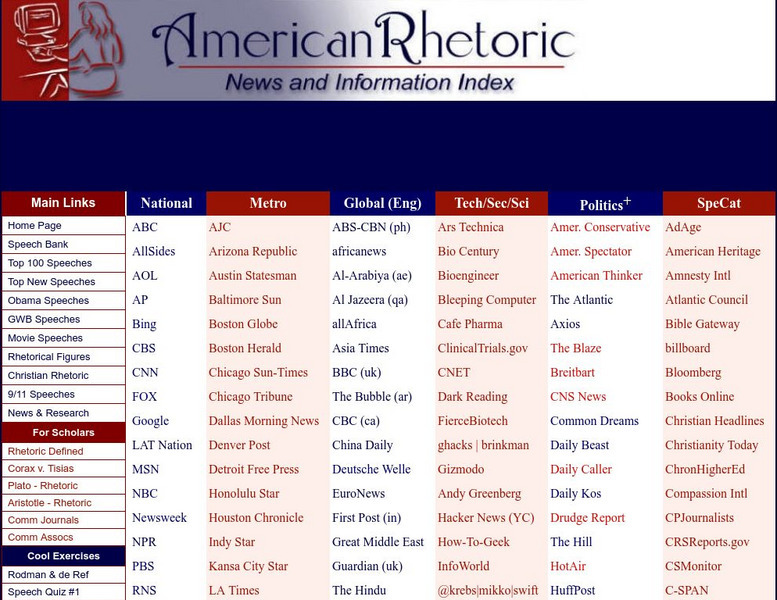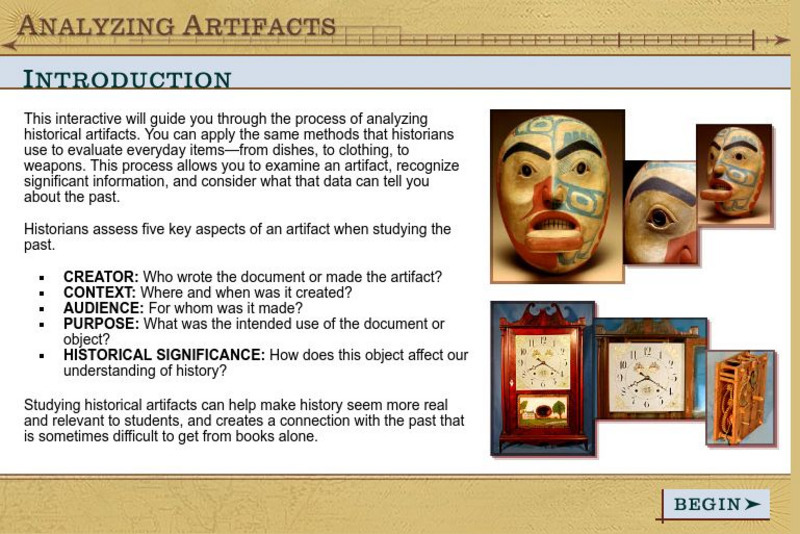Hi, what do you want to do?
National Endowment for the Humanities
Lesson 3: Religion and the Fight for American Independence
Pupils explore the role religion played in the American Revolutionary War. Using primary documents and writing exercises, students understand how religion was used in support of the war efforts and how specific religious groups responded...
National Endowment for the Humanities
Lesson 2: The Debate in Congress on the Sedition Act
Pupils research and discuss the provisions in the Constitution that supported the arguments for and against the Sedition Act. They articulate objections to and arguments in favor of the Sedition Act.
National Endowment for the Humanities
Chinua Achebe's Things Fall Apart: Oral and Literary Strategies
Readers are first introduced to Chinua Achebe's Things Fall Apart by making a map of Africa. They will better understand the novel's historical and literary contexts, European and African literary traditions, and how...
Library of Congress
Loc: Teacher Resources
This compilation of teacher resources has useful collections of primary sources, lesson plans, themed subject overviews, and ready-to-use presentations and activities to support the study of U.S. history at all academic levels.
Library of Congress
Loc: Primary Sources by State
An interactive map to search for extensive collections of primary sources for each of the United States.
Curated OER
History Matters: Many Pasts
These primary source documents are about ordinary Americans throughout US history. There is a full search feature. All the historical documents, whether they are text, image, or audio, have been vetted by a historian. They are initially...
Library of Congress
Loc: For Teachers: Analyzing Primary Source Documents
These student worksheets and activities help students analyze many different types of primary source documents. Life histories, objects, and photographs are all used to engage students.
Library of Congress
Loc: How to Find a Novel,etc. Without Knowing Its Title or Author
Use this guide to help identify a literary work when they know only its plot or subject, or other textual information such as a character's name, a line of poetry, or a unique word or phrase. Trusted databases, library catalogs, and more...
Curated OER
History Matters: The u.s. Survey Course on the Web
Designed for high school and college teachers and students, History Matters serves as a gateway to web resources and offers other useful materials for teaching U.S. history.
Brigham Young University
Euro Docs: Online Sources for European History
Connect to primary source documents (facsimiles. transcriptions, translations) that trace the history of Europe.
Internet History Sourcebooks Project
Fordham University: Medieval Sourcebook: History Through Primary Sources
This site from the Medieval Sourcebook answers the question: Why Study History Through Primary Sources? It provides complete information, a list of review questions, and bibliography information.
Scholastic
Scholastic: News Writing With Scholastic Editors
An excellent site for learning about news writing. This site is an in-depth workshop that takes you through the news writing process step by step by providing examples and tips.
University of Missouri
Interpreting Citations Tutorial
Want to make sense of the crazy-looking symbols and abbreviations in many periodical indexes? This clearly presented, quick tutorial can show you exactly what each strange symbol and abbreviation means.
University of Washington
Pacific Northwest Regional Newspaper & Periodical Index
Covering newspapers, magazines, monographs, theses, dissertations and other material, this index goes back as far as the mid-nineteenth century. Very useful for locating primary source material on the Pacific Northwest region.
Roy Rosenzweig Center for History and New Media
Teaching History: National History Education Clearinghouse
A vast resource filled with information on teaching history at all grade levels. There are links to podcasts, teaching materials, primary source documents, videos, and best practices in the teaching of history. Don't miss this fantastic...
Polk Brothers Foundation Center for Urban Education at DePaul University
De Paul University: Center for Urban Education: History Thinker: Analyze Then Summarize [Pdf]
This Center for Urban Education resource provides a downloadable worksheet. Students will read about a historical event and answer scaffolded questions that will help them retell what happened, explain the causes and effects, and then...
US National Archives
Our Documents: 100 Milestone Documents
A collection of one hundred documents that are significant in shaping the history of the United States, beginning with the Lee Resolution of June 7, 1776, and ending with the Voting Rights Act of 1965.
Other
Archives Pei: Heritage Fair Projects a Guide to Sources [Pdf]
A comprehensive resource for students and teachers for planning and researching a project for a heritage fair. While it is intended for Prince Edward Island residents, it offers excellent tips, web links and books for guidance.
Other
Georgia Tech Research Institute: Chronicling America: Us News Map
A fascinating way to look at history, this interactive map lets you search for a person, event, issue, etc. over a specified time frame and it maps newspapers containing related content onto a map of the United States. An additional...
Other
Historical Scene Investigation: The Boston "Massacre"
In this activity, students examine primary sources to learn about the perspectives of the different parties involved in the Boston Massacre of 1770, and to form opinions about who was responsible for what happened and whether the verdict...
American Rhetoric
American Rhetoric: News and Information Index
This website is a news and information index that offers links to news sources, newspapers, magazines and journals, search engines, polling data, legal resources, and citation guides.
Other
Houston Independent School District: Social Studies Strategies [Pdf]
Hone in on methods for historical thinking and the process of historical inquiry when studying social studies.
Annenberg Foundation
Annenberg Learner: Opb American History Interactive: Evaluating Evidence
Use this interactive lesson to practice evaluating evidence from primary sources in order to draw conclusions about a historical event. In this particular case, the event is the Civil War. The challenge is to decide for yourself which of...
Annenberg Foundation
Annenberg Learner: Analyzing Artifacts
Learn the steps in the 5-step process that historians use when they analyze an artifact as you investigate what you can learn from Native American and other items.









